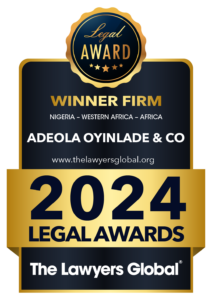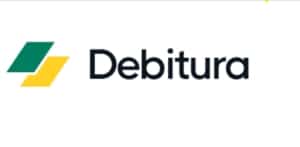Trademark Law in Nigeria: A Guide to Registration, Infringement and Enforcement
What are the principal legislations regulating trademarks in Nigeria?
The following laws are the relevant pieces of trade mark legislation in Nigeria:
- The Trademarks Act, CAP T13 Laws of the Federation of Nigeria (“LFN”), 2004 (the “Trademarks Act”) as amended.
- The Trademarks Regulation, 1967.
- The Merchandise Marks Act, CAP M10 LFN, 2004 (the “Merchandise Marks Act”).
- The Trademark Malpractices (Miscellaneous Offences) Act, CAP T12 LFN, 2004.
- The Counterfeit and Fake Drugs and Unwholesome Processed Foods (Miscellaneous Provisions) Act, CAP C34 LFN, 2004.
- The Cybercrimes (Prohibition, Prevention) Act, 2015.
What can be registered as a trademark in Nigeria?
Section 67 provides for a device, brand, heading, label, ticket, name, signature, word, letter, colour mark, numeral, the shape of goods, their packaging, or the combination of colours may be registered as a trade mark in Nigeria. Three-dimensional marks are also eligible for trade mark protection.
What are not registerable as trademarks in Nigeria?
Marks or Designs that are unlawful or contravene public policy, deceptive or scandalous marks that are likely to cause confusion, names of chemical substances, similar or identical marks or designs, geographical names in their ordinary signification are not registrable as trademarks in Nigeria. See sections 11, 12, 13 and 18 of the act precludes trademark registration fraudulently obtained, file in bad faith and a mark filed by a person not being the true proprietor.
What information is required to register a trademark in Nigeria?
The following documents and information are required for Trademark registration in Nigeria:
- the name, address and nationality of the proprietor of the trademark;
- representation of the trade mark;
- specification of goods/services for which the trade mark is sought to be registered;
- the class of goods/services; and
- an executed Power of Attorney in favour of an authorised agent or attorney to process the application on behalf of the applicant.
What is the procedure for Trademark registration in Nigeria?
- The first step is to conduct an availability search at the Trademarks Registry to ascertain that the mark is available in the class registration is being sought
- The trademark application is filed with an acknowledgment letter issued and is subsequently examined for registration after which an acceptance letter issued.
- Upon the acceptance, the accepted trademark application is listed for publication in the trademarks register (the publication of the Trademarks Office).
- After publication in the Trademarks Journal, the application is open to opposition by any third party to file a notice of opposition.
- Where there are no oppositions within this period, the applicant can procced to pay (sealing) fee and file to obtain the certificate of registration upon which the registration certificate is issued.
On what grounds can a trademark application be opposed in Nigeria?
Any person may oppose a trademark in registration Nigeria on any of the following grounds:
- The trademark is confusingly similar and/or identical to another’s trademark previously registered or well-known trademark
- The trademark is containing geographical names,
- The applicant is not the true proprietor or owner entitled to register the trademark,
- The trade mark contains the name of a chemical substance.
- The applicant for the trade mark has no intention of using it.
- Trademark containing any matter which is unlawful or contrary to public policy, among others,
What is the Trademark opposition procedure in Nigeria?
Any person (individual or corporate body) irrespective of proprietary interest, who believes that a trade mark application before the Trademarks Registry should not be granted may file an opposition to the registration in accordance with the following procedure:
- A party who intends to oppose a trade mark application must commence by filing a Notice of Opposition (the “Notice”) containing the ground(s) of opposition within two months from the date of publication of the application for trade mark registration,
- The registry must serve the notice on the trademark applicant, who must within a month non-extendable deadline to file a counterstatement to the Registrar stating grounds being relied on for the application for trademark registration. Where Counterstatement is not filed, the trademark application by the applicant shall be deemed abandoned.
- Where the applicant files a Counterstatement, the Registrar shall send a copy to the opposing party. Both parties will then exchange statutory declarations in the form of evidence. When all processes have been filed, the tribunal issues a date for adoption/argument, and then a ruling is delivered. Appeal lies at the Federal High Court. The Registrar’s decision is subject to appeal to the Federal High Court.
Is multi-class filing applicable in Nigeria?
No. Applicant can only file a per class as Nigeria adopts a single-class filing system. Where a trademark is intended to cover multiple classes, applicant is required to file per class of interest separately.
Are trademark rights enforceable in Nigerian courts?
Trademark rights are enforceable in Nigerian courts. The owner of a registered trademark in Nigeria may decide to enforce right of exclusive use of the mark by instituting action before the Federal High Court of Nigeria and seek injunctive relief to restrain and stop future violations of the registered trademark. See Ayman Enterprises Ltd v Akuma Ind Ltd & Ors (2003) LPELR-683 (SC).
As held in Gallaher Ltd & Anor v BAT (Nig) Ltd & Ors (2014) LPELR-24333 (CA), a proprietor may seek injunctive relief to stop, on an urgent basis, the continuing violation of a registered trademark pending the hearing and determination of a suit for the enforcement of trademark rights in Nigeria.
What is the term granted by Trademark registration in Nigeria?
The initial registration of a trademark in Nigeria is valid for seven years from the date of application. Thereafter, it is perpetually renewed every 14 years.
How is trademark renewed in Nigeria?
Trademark renewal application is made to the Registrar through the appropriate form along with the prescribed fees and the certificate of registration or the certificate of last renewal, as applicable.
Note: The content of this article is anticipated to provide a general guide to the subject matter. Specialist advice should be sought about your specific circumstance.
By Adeola Oyinlade & Co.
Adeola Oyinlade & Co.; a leading full-service law firm in Nigeria provides help and offers advisory to both local and foreign clients on intellectual property in Nigeria.
To see our service offerings, please contact us at [email protected] or visit www.adeolaoyinlade.com
Mobile: +234 803 826 7683 / +234 802 686 0247










